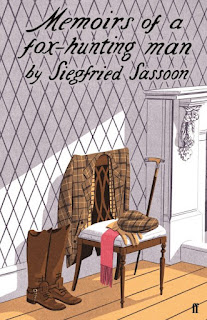At the Meeting Point: Between a Poet's Soul and Body
Louis MacNeice’s poetic landscape was multifarious, jam-filled with various meanings. Though he left Ireland for England at a young age, his homeland’s taste for the spiritual stuck with him to the very end, a splatter-paint canvas for all his serious thoughts, vouching for life, the Christian spirit, and the metaphysical.
Hearing in one poem music-lessons on a Sunday morning (“the notes like little fishes”), MacNeice reflects on “the windy past”, gathering his faculties, and for a moment, realising the power of his imagination: “you can abstract this day and make it to the week of time / A small eternity, a sonnet self-contained in rhyme” (p. 19). The poem, the language of abstraction, brings MacNeice closer to the ineffable, the transcendent moment; his poetry is metamorphosis, from the everyday to the sublime.
The first thing critics usually say about MacNeice is his love for the immediate, “a relish for the sensory world” (p. xv). Sure enough the entirety of MacNeice’s work can be summed up in a phrase: a sensitivity for transient experience, the preciousness — the sheer essence — of the lived moment. “World is suddener than we fancy it”, he famously stated in ‘Snow’. “World is crazier and more of it than we think, / Incorrigibly plural” (p. 23).
But this multi-layered poetic vision is short. Like watching sunlight in a garden, the world grows with time. Then disappears. In MacNeice’s words: “We cannot cage the minute / Without its nets of gold, / When all is told / We cannot beg for pardon” (P. 38). This solid truth, the thousand-mile speed of our most treasured moments, is what drives all of MacNeice’s work; it’s what makes him such a compelling writer.
Poetry is the artist’s attempt to defy the odds: sweep away the inexorable tide of time, using language to still the lived moment, and make it permanent. Making the small things beautiful — piercing the world’s fabric, imbuing it with a holy quality — is what this project is all about. For MacNeice, this means the lone “moment cradled like a brandy glass” within the poet’s grasp (p. 38).
If this is true, the poet can re-fashion our sense of the immediate. Writing breeds existence — a hyper-meaningful act. Words allow the likes of MacNeice to skim and dip into the pond of life as if this Earth was self-creating, dependent on the poet’s record. “The world is what we make”, MacNeice soothes in ‘London Rain’. “And we only can discover / Life in the life we make” (p. 72). Quite the assertion. Pushing free will to its limits, the poet-writer crafts their world and puts it on a pedestal, re-working the fathomable.
To the unsuspecting reader, MacNeice’s writing may appear to be an overtly religious act. But this is half-deceiving. MacNeice’s father was an Anglican rector in Carrickfergus, a churchman; and MacNeice gave up on the strict theological beliefs of his father early on. He turned his back on his family’s orthodoxy, yet stayed faithful to a religious sensibility, more searching than formal, for the rest of his adult life. Instead, MacNeice’s goal was to reclaim the physical world, coagulate it with the metaphysical, grant it a sense of the eternal presence — in a fantastic phrase, “concentrate on this Now” (p. 19). Summing himself up in ‘Entered in the Minutes’:
Refusing to fall in love with God, he gave
Himself to the love of created things
Accepting only what he could see, a river
Full of the shadows of swallows’ wings. (p. 91)
Love the palpable, is what he is saying. Plunge into the deep end; quench a thirst for the immutable, the taste of the infinite. An appeal for his readers to appreciate the sugar of the surface realm, its excellence — either way, “its flux or its permanence” (p. 23).
Last but not least, MacNeice is also brilliant on place. Ireland’s spirituality never left him — nor did its cities. Writing in ‘Belfast’ (composed in September 1931) of the “hard cold fire of the northerner”, unresolved conflict seeps from the core of his musings. Around a “melancholy lough”, he hears “hammers clang murderously on the girders”; the day ends with the sun retreating like a wounded soldier, going down with the hard-headed “banging of Orange drums” (p. 15). The city’s violence is omnipresent, bleeding into every urban crevice and corner.
Such poems exhibit the extent of MacNeice’s influence on later poetry. Read any Belfast poet from the 1960s generation — Seamus Heaney, Derek Mahon, Michael Longley to name a few — and MacNeice is there, at the meeting point, ever-present between the poet’s soul and body.
Source:
Selected Poems. By Louis MacNeice (ed. by Michael Longley). London: Faber & Faber, 1988. 978-0-571-23381-6.
 |
| © BBC |


Comments
Post a Comment